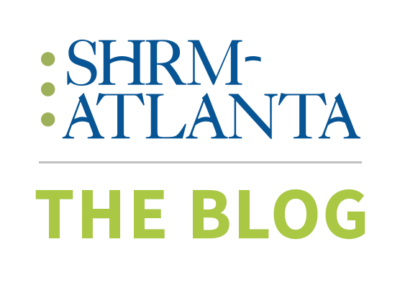Author: Candace Jackson, CPA
Fiduciary responsibility is often at the forefront of plan sponsors’ minds as we conduct annual employee benefit plan (EBP) audits. We see a variety of levels of plan oversight, but one fiduciary best practice is that the plan sponsor forms an EBP committee. Forming a committee encourages regular discussion of the EBP, provides formalized documentation of decisions made related to the plan, and monitors plan fees and investment performance. Depending on the plan and sponsor size, the committee can look different for each entity. Below are seven things you should consider when forming an effective EBP committee.
1. Formalize EBP Committee Responsibilities
Establish a document that explains the committee’s purpose, how the committee chooses members and the frequency of meetings.
2. EBP Committee Demographics
Consider members of management from various departments, including Human Resources, Finance and Operations. Job titles are the most common way to select committee members, with expertise close behind. Those chosen to serve should become familiar with primary fiduciary duties, plan provisions and performance, and investment review guidelines.
3. EBP Committee Size
Committees often range from three to seven people depending on the organization’s size and plan. Having an odd number of members reduces the likelihood of tied votes.
4. EBP Committee Meeting Frequency
Committees ideally will meet quarterly, although a minimum of annually is also typical.
5. EBP Committee Leaders
The committee must appoint a secretary to keep all meeting minutes. Sometimes, the plan’s consultant or investment advisor will lead the meeting agenda, or the committee can appoint a chairperson to provide leadership.
6. EBP Committee Meeting Minutes
The committee should keep minutes at all meetings to document when the meeting took place, who was in attendance, what they discussed, any decisions voted on and any action items for future meetings. Minutes should also include all reports or items reviewed and considered when making decisions.
7. Adopt an EBP Plan Investment Policy Statement
One of the top priorities of a plan committee should be to establish an investment policy statement that provides a clear roadmap to follow when monitoring plan investment performance. The investment policy will include guidance on what investments should be in the plan, how the plan should monitor investment performance and the process for replacing funds.
Plan sponsors should not take the decisions made in these committee meetings lightly. Committee members are plan fiduciaries, and the primary responsibilities of a plan fiduciary are to act in the best
interest of plan participants, carry out duties prudently and offer a variety of plan investment offerings. Fiduciary education is an essential item in equipping committee members to serve effectively.
A committee can also help insulate the plan sponsor from participant complaints and lawsuits in today’s litigious environment. A casual approach, such as one or two executives reviewing a fund report prepared by the vendor, does not provide a sufficient level of governance.
We would be remiss not to speak to the responsibility of the committee to understand and monitor the costs of running the plan. Costs include administration, recordkeeping and investments selected. Committees must also understand that differences in share classes and revenue sharing arrangements may also impact investment costs. It also requires plan benchmarking and review of fee disclosures. These tasks are typically not an area of expertise for the committee members. Working with a third-party investment advisor to help the committee navigate the ever-changing financial landscape is a good idea.
Final Thoughts
Investment committees have a critical responsibility regarding decisions that impact plan participants’ retirement. Proper oversight is also crucial to the plan sponsor to help limit liability associated with managing an employee benefit plan. It is tempting to outsource the oversight and management of the plan to consultants and third parties. However, the dedicated involvement of an employee benefit plan committee will simplify and streamline decision-making, increase the likelihood that plan sponsors meet plan and participant objectives, and demonstrate that the plan fiduciaries are engaged in the process. If you have questions about forming an EBP committee, the Moore Colson Employee Benefit Plan Audit Practice is here to help. Don’t hesitate to contact us for more information.
 CANDACE JACKSON
CANDACE JACKSON
Business Assurance Partner
[email protected]
678.385.6036
Experience
Candace Jackson, CPA, is a Partner in Moore Colson’s Business Assurance Practice. Candace manages audit and review teams and serves as a practice area leader in the firm’s Employee Benefit Plan practice. With over 15 years of experience with employee benefit plans, Candace serves both public and private company plans to ensure compliance with reporting requirements and advise on plan operations. She annually assists clients with 401(k), 403(b), pension, ESOP, and health and welfare plans.
Candace often contributes to events and publications highlighting her expertise in the employee benefit plan market. She speaks annually at the Georgia Society of Certified Public Accountants Employee Benefit Plan Conference, has been published in the Society’s Current Accounts magazine, serves as Treasurer on the Board of Directors for the Pension Education Council of Atlanta, and hosts several educational events via webinars and lunch and learns annually for clients and retirement plan community members.
In addition to her expertise in employee benefit plan audits, Candace also has extensive experience serving clients in the transportation, distribution and services industries.
Education
Berry College — Bachelor of Business Administration, Finance and Accounting, 2007
Professional Affiliations
Georgia Society of Certified Public Accountants (GSCPA)
American Institute of Certified Public Accountants (AICPA)
Women in Pensions Network
Pension Education Council of Atlanta, Inc. — Treasurer
Society for Human Resource Management, Atlanta Chapter
Employee Benefit Expertise
Advanced Defined Contribution Plans Audit Certificate by the American Institute of CPAs (AICPA)
Moore Colson employee benefit leadership team
Assists in executing approximately 50 employee benefit plan audits each year
Conducts employee benefit plan audit training
Georgia Society of Certified Public Accountants Employee Benefits Conference Task Force and Speaker
Attends annual AICPA national employee benefit plan conference (attended annually since 2010)




